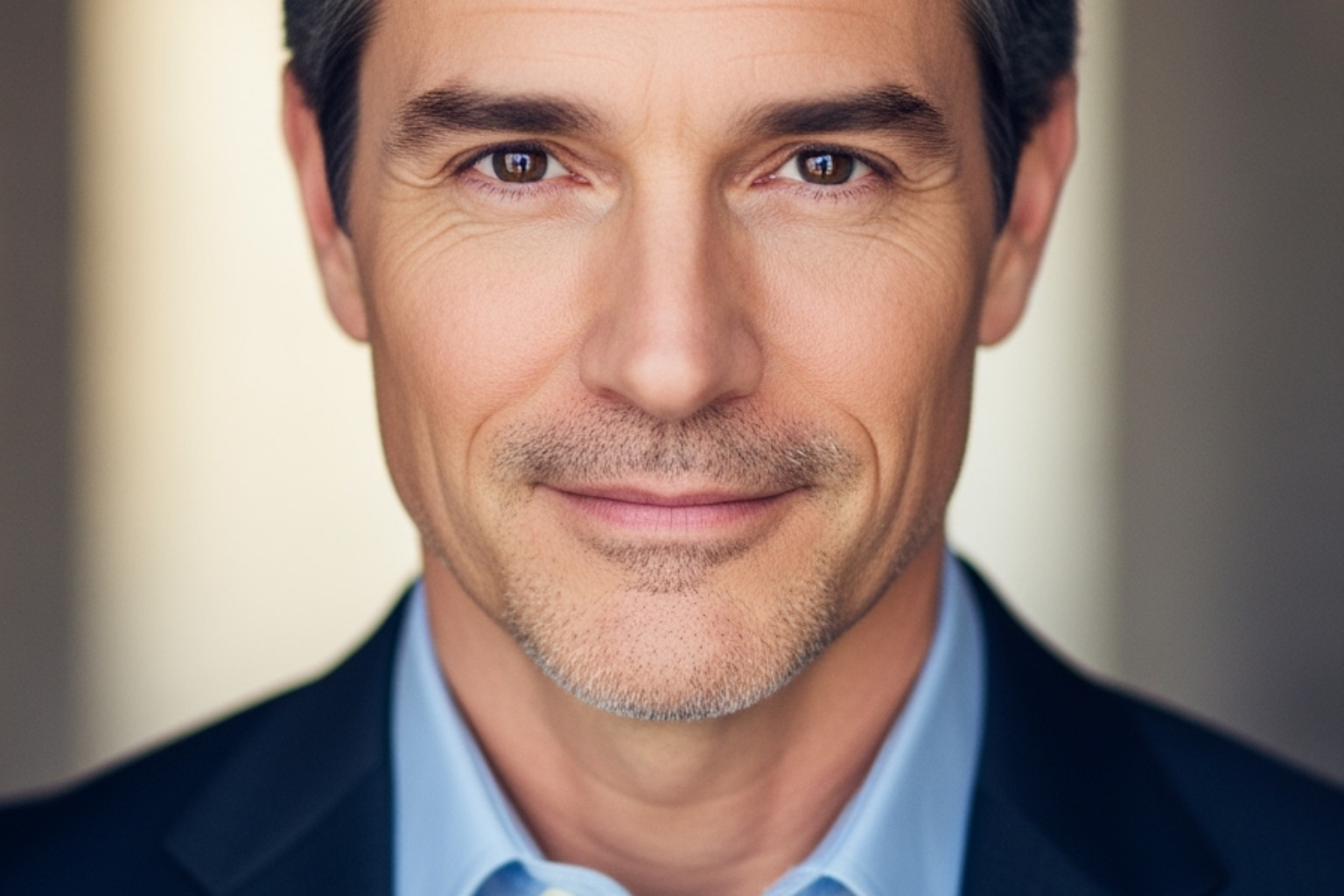Dean Cain: 90s Icon, Unfazed Hero
Dean Cain: A Case Study in Career Pivots and Brand Management
Dean Cain, an American actor best known for his role as Superman, offers a fascinating case study in career longevity, strategic pivots, and brand evolution. Born on July 31, 1966, the 57-year-old’s professional trajectory from college football star to Hollywood icon and now public service advocate highlights key principles of navigating market changes and leveraging a personal brand.
Quick Facts About Dean Cain’s Career:
- Breakthrough Role: Superman/Clark Kent in “Lois & Clark” (1993-1997), establishing his marketability.
- Initial Career Path: Set a Princeton University football record, signed with the NFL’s Buffalo Bills.
- Portfolio Volume: Over 100 films and TV appearances, demonstrating a prolific production rate.
- Brand Extension: Serves as a reserve police officer and law enforcement advocate.
- Personal Life: Single father to son Christopher Dean Cain.
- Recent Strategic Move: Aligned with U.S. Immigration and Customs Enforcement, sparking public debate and media attention.
Cain’s journey from the Princeton football field to Superman’s cape was not a linear path but a response to unforeseen circumstances. A career-ending knee injury forced a pivot from professional sports, leading him to leverage his talents in the entertainment industry—a move that resulted in one of TV’s most beloved superhero portrayals.
Today, Dean Cain’s public profile is shaped not just by his entertainment portfolio but by his vocal engagement in public policy. His decision to support ICE has placed him at the center of national conversations, demonstrating a willingness to take calculated risks with his personal brand.
From hosting “Ripley’s Believe It or Not!” to starring in 16 Christmas movies, Cain has built a diversified career. His more recent shift toward public service roles—including becoming a reserve police officer in Idaho—shows a strategic use of his platform to support specific causes, further defining his brand in the public sphere.
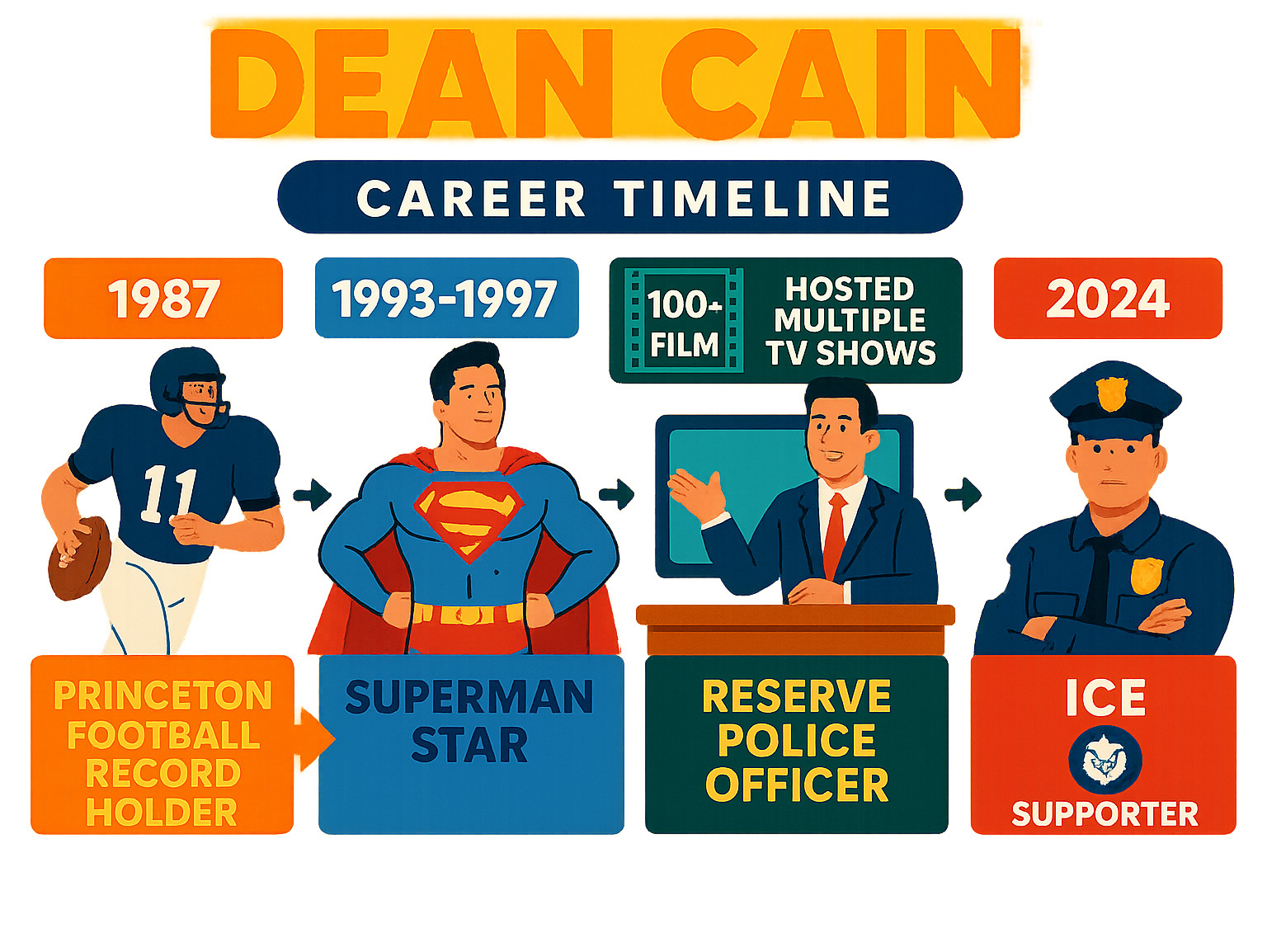
To understand the economic context of Cain’s career, consider these related financial topics:
From Princeton Athlete to Hollywood Asset
Dean Cain’s path to stardom was not a typical Hollywood trajectory but a lesson in adapting to market forces and capitalizing on unforeseen opportunities. His journey from a promising career in professional sports to a television icon demonstrates how career-altering setbacks can lead to even greater success.
The Early Years and a Strategic Pivot
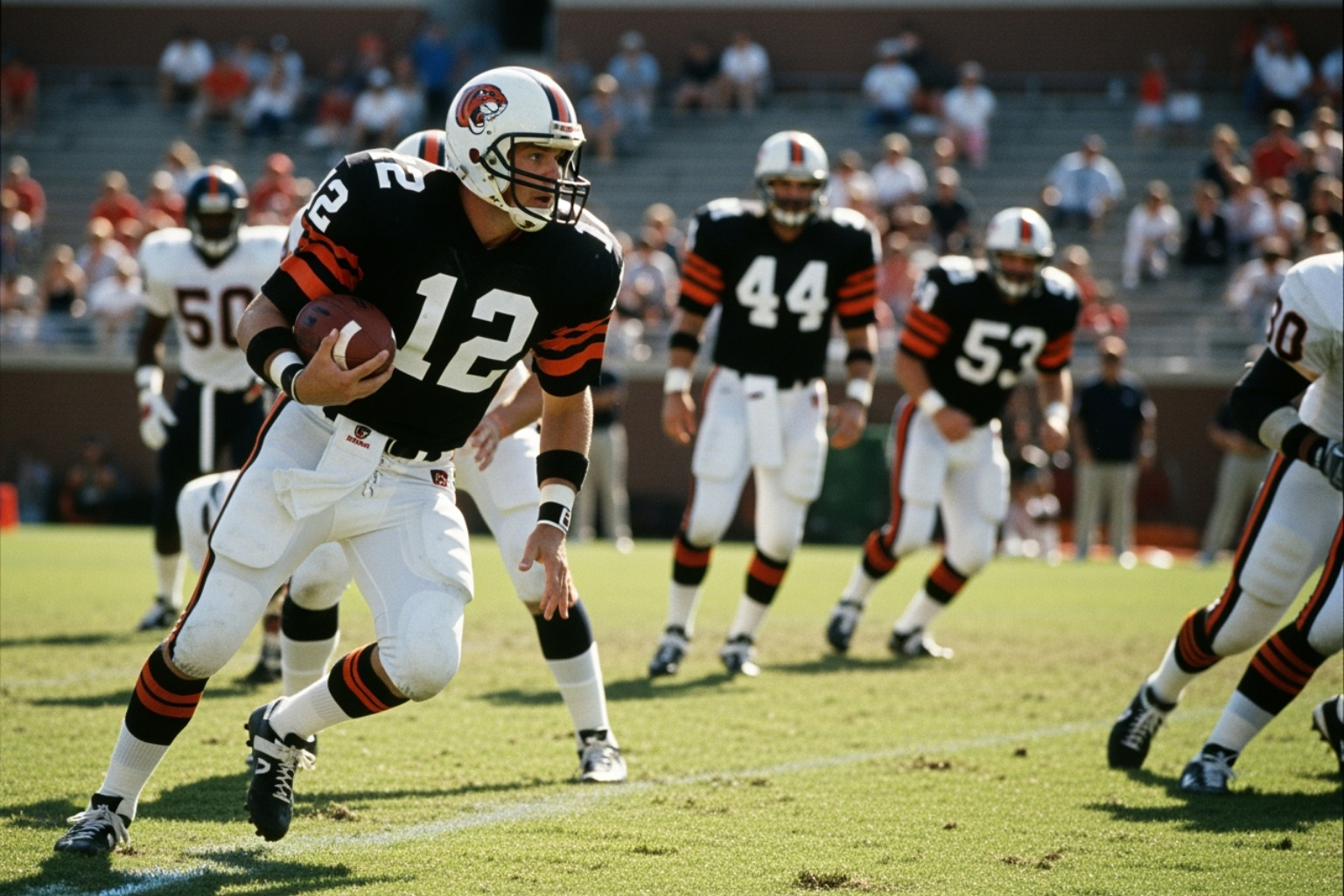
Born Dean George Tanaka on July 31, 1966, Cain’s early life was influenced by the entertainment industry through his mother, actress Sharon Thomas, and his adoptive father, film director Christopher Cain. Despite this, his initial focus was on athletics, a field with its own significant financial potential.
At Princeton University, he excelled, setting a school record with 12 interceptions in a single football season. His performance secured him a free-agent contract with the NFL’s Buffalo Bills, placing him on a path toward a lucrative career in professional sports. However, that path was abruptly cut short. A knee injury ended his pro career before it began, forcing a critical career pivot. This setback, while devastating to his athletic ambitions, opened the door to the entertainment industry, where his brand and marketability would eventually flourish.
Becoming an Icon: The “Lois & Clark” Phenomenon
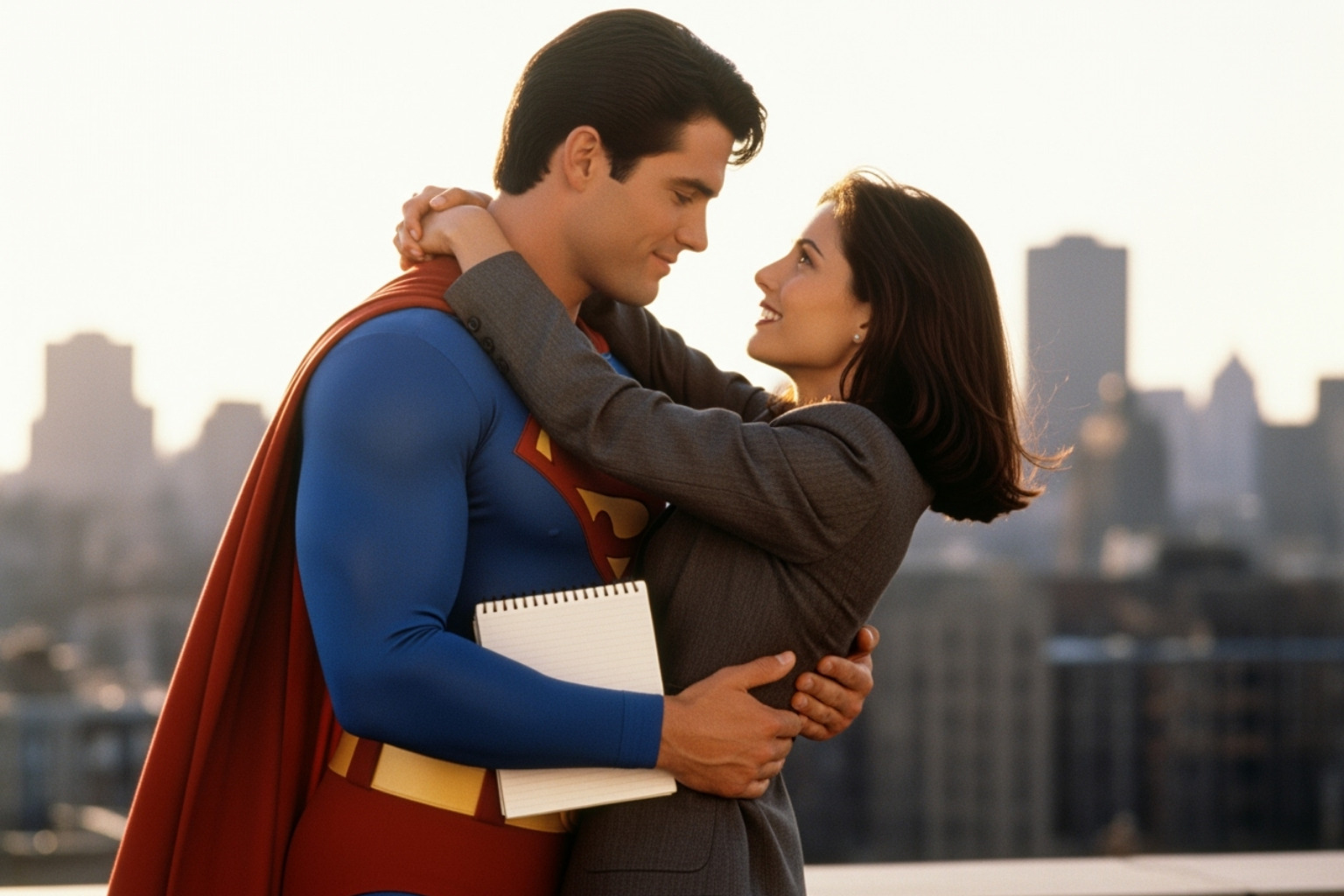
The 1990s saw Dean Cain transform from a former athlete into a highly valuable media asset. The TV series “Lois & Clark: The New Adventures of Superman” (1993-1997) was a masterclass in market positioning. The show’s innovative focus on the relationship between Clark Kent and Lois Lane (played by Teri Hatcher) tapped into a massive audience, particularly the female demographic, which was underserved by traditional superhero narratives.
Cain’s portrayal of a confident, charismatic Clark Kent was a key factor in the show’s success. The on-screen chemistry between Cain and Hatcher drove ratings, with the show attracting at least 15 million viewers per episode at its peak. This success cemented Dean Cain as a bankable star and a 90s heartthrob, a status recognized by VH1, which ranked him on its “40 Hottest Hotties of the ’90s” list. Demonstrating his value beyond acting, Cain also took on writing duties, contributing to the show’s creative and commercial success.
A Diversified Portfolio Beyond the Cape

Post-Superman, Dean Cain successfully avoided typecasting by building a diversified entertainment portfolio. His career demonstrates a strong work ethic and strategic versatility, with over 100 films and numerous television appearances.
Cain identified and capitalized on a profitable niche in family-friendly and holiday-themed content, starring in 16 Christmas movies. This strategy made him a reliable draw for a specific market segment. He further diversified his income streams through hosting roles on shows like “Ripley’s Believe It or Not!” and “Masters of Illusion.”
His acting credits span multiple genres, with roles in popular series such as “Burn Notice,” “Law and Order: SVU,” and “Supergirl,” where he returned to the DC universe in a recurring role. This demonstrates an ability to remain relevant and secure work in a competitive industry.
Beyond on-screen roles, Cain expanded his industry footprint with 17 producer credits, 6 writer credits, and 3 directing projects. This vertical integration showcases a sophisticated understanding of the entertainment business. His career, marked by 13 wins and 8 nominations, is a testament to his successful transition from athlete to a multi-faceted entertainment professional.
The Evolution of the Dean Cain Brand: Public Service and Advocacy
In a later phase of his career, Dean Cain began a significant brand evolution, transitioning from a screen hero to a real-world public advocate. This strategic shift involved leveraging his celebrity status to engage in public discourse and assume roles in civil service, adding new dimensions to his public persona and brand identity.
From Hollywood Insider to Public Commentator
Dean Cain has strategically positioned himself as an outspoken public commentator, a move that differentiates him within the often politically monolithic Hollywood landscape. He has cultivated a nuanced political brand, describing himself as socially liberal but conservative on fiscal and foreign policy. This complex positioning allows him to appeal to a broader, more diverse audience outside of the traditional entertainment bubble.
His public endorsements and media appearances as a news contributor are calculated moves to maintain relevance and influence public opinion. By vocalizing support for political figures and policies, he actively shapes his brand, associating it with specific values and ideologies. This willingness to engage in potentially polarizing topics is a high-risk, high-reward branding strategy.
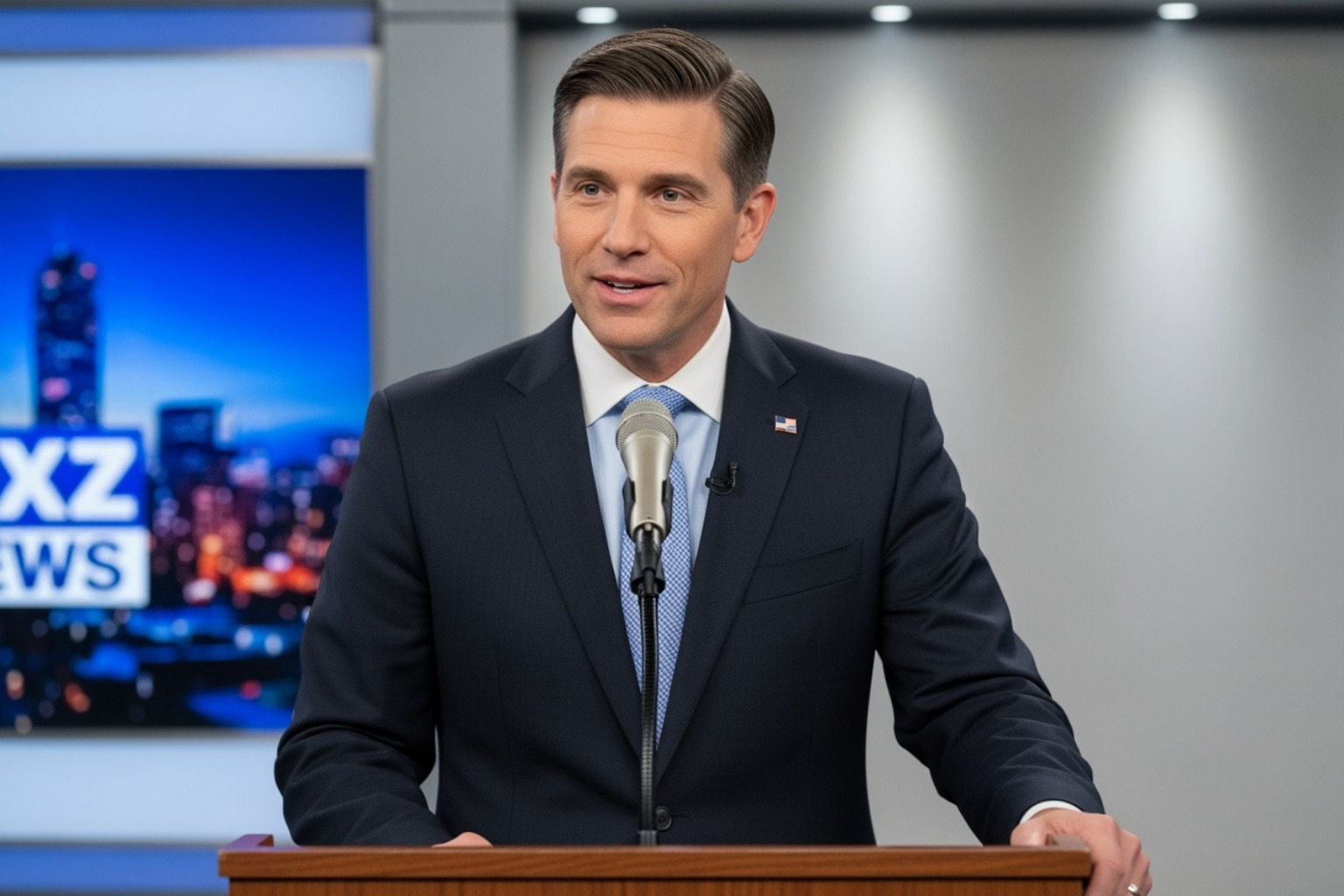
Leveraging Brand Equity for Public Service Roles
Cain has translated his public advocacy into tangible action, adding significant credibility to his brand. In 2018, he was sworn in as a reserve police officer in St. Anthony, Idaho, and later became a deputy sheriff in Virginia. These are not honorary titles but functional roles that represent a substantial investment of his time and a genuine commitment to law enforcement.
This alignment with law enforcement is a core pillar of his current brand. Further cementing this position, Cain confirmed his board membership in a national organization, the National Rifle Association, in 2018. By taking on these roles, Cain moves beyond simple celebrity endorsement to active participation, a powerful tool for brand authenticity.
His success on the competition show “Stars Earn Stripes,” which honored military and law enforcement, further reinforced this brand identity. By backing his public statements with direct action and service, Cain has executed a successful and authentic brand evolution from entertainer to public servant.
Brand Risk and Public Alignment: The ICE Controversy
Dean Cain’s public support for U.S. Immigration and Customs Enforcement (ICE) represents a significant and controversial strategic decision. This move placed his personal brand squarely in the middle of a volatile national debate, testing the resilience of his public image and professional relationships.
The Strategic Decision to Support Law Enforcement
Cain’s alignment with ICE was a calculated extension of his established pro-law enforcement brand. This was not an isolated endorsement but the next logical step following his roles as a reserve police officer and deputy sheriff. His public rationale was data-driven, citing a reported 830% increase in assaults on ICE officers as a key motivator.
His support also provided high-profile backing for Department of Homeland Security recruitment initiatives, including efforts to hire 10,000 new agents. By lending his celebrity to this cause, Cain made a clear statement about his brand’s values, prioritizing support for law enforcement personnel over potential industry backlash. The decision immediately polarized public opinion, generating both praise and intense criticism.
The Backlash: A Case Study in Reputational Risk
The reaction from Hollywood was a textbook example of the reputational and professional risks associated with taking a controversial public stance. The backlash was immediate and severe, with industry peers like John Leguizamo publicly denouncing him. The social media insult “Dean Cain, your pronouns are has/been” was a targeted attack on his professional relevance, a common tactic used to de-platform dissenting voices in the entertainment industry.
This incident highlights the deep political polarization in America and its impact on celebrity branding. The criticism was not merely a disagreement on policy but an attempt to damage his career and legacy. For Cain, the fallout was a direct consequence of his decision to align his brand with a contentious federal agency.
Cain’s Response: Crisis Management and Brand Reinforcement
Faced with significant backlash, Dean Cain‘s response was a lesson in crisis management and brand reinforcement. Rather than retracting his position, he doubled down. In an interview on “The Brian Kilmeade Show,” he stated, “I’m not worried about Hollywood attacking me,” signaling that his brand was no longer dependent on the approval of the entertainment establishment.
He effectively reframed the narrative, shifting the focus from the political controversy to the principle of supporting public servants. His defense centered on a simple, powerful question: “Why are we attacking our ICE agents?” He also strategically appealed to a different constituency, arguing that legal immigrants are among the strongest supporters of ICE, broadening the perceived support base for his position.
By standing firm, Cain reinforced his brand’s core attributes: conviction, loyalty to law enforcement, and independence from Hollywood orthodoxy. This strategy, while costing him support in some circles, likely strengthened his appeal within his target demographic.
Dean Cain: Financial and Personal Profile
Understanding the man behind the brand involves looking at both his financial standing and his personal background, which provide context for his career decisions and public persona.
What is Dean Cain’s net worth?
An analysis of Dean Cain’s net worth reveals a financial portfolio built on diversified income streams, a hallmark of savvy career management in the entertainment industry. While exact figures are private, his financial success can be attributed to several key areas:
- Peak Television Earnings: During the height of “Lois & Clark’s” popularity in the 1990s, Cain commanded a salary of approximately $60,000 per episode. Over four seasons, this formed a significant capital base.
- Volume of Work: With over 100 film credits, Cain has maintained a consistent income from acting roles, strategically choosing projects in profitable niches like holiday movies.
- Vertical Integration: By expanding into producing (17 credits), writing (6 credits), and directing (3 credits), Cain captured additional revenue from his projects, moving beyond a simple work-for-hire model.
- Hosting and Appearances: Lucrative hosting gigs for shows like “Ripley’s Believe It or Not!” and other media appearances have provided additional, steady income streams.
This multi-pronged approach to revenue generation, likely supplemented by investments and endorsements, demonstrates a sophisticated financial strategy that has sustained his wealth over several decades.
Is Dean Cain married and does he have children?
Currently single, Dean Cain‘s primary personal role is that of a father to his son, Christopher Dean Cain (mother is Samantha Torres). His public focus on being a single father is a key component of his personal brand, projecting values of responsibility and family.
His most high-profile early relationship was with actress Brooke Shields during their time at Princeton University. This relationship, while not lasting, was a pairing of two ambitious individuals at the start of their respective careers. Today, his public life is largely defined by his career, advocacy, and fatherhood.
What is Dean Cain’s ethnicity?
Dean Cain’s background is a blend of diverse heritages. Born Dean George Tanaka, he is of one-quarter Japanese descent from his biological father, Roger Tanaka. His ancestry also includes Welsh, Irish, and French Canadian roots. He was later adopted by his stepfather, director Christopher Cain, and took his surname.
This multicultural background is an integral part of his identity. In the context of personal branding, a diverse heritage can be a significant asset, allowing for a broader relatability and a more unique story in a crowded marketplace of public figures.
Conclusion: Dean Cain as a Case Study in Career and Brand Evolution
Dean Cain’s professional life serves as a compelling case study in strategic adaptation, financial diversification, and brand management. His journey from the football field to the Superman suit and now to the front lines of public debate is a masterclass in navigating career-altering challenges and leveraging a public platform.
His career demonstrates several key business principles: the importance of a strategic pivot after an early setback, the value of diversifying income streams across multiple media, and the power of building a niche market, as seen with his prolific work in family and holiday films.
More recently, Cain’s evolution into a public advocate and reserve law enforcement officer represents a calculated brand repositioning. By taking firm, often controversial stances, he has differentiated himself from his peers, trading broad Hollywood appeal for a more defined and loyal audience. This willingness to accept professional risk in exchange for brand authenticity is a significant aspect of his later career.
Whether viewed as an actor, an entrepreneur, or a public figure, Dean Cain has built an enduring legacy by refusing to remain static. He has consistently adapted to new environments, taken on new roles, and redefined his value proposition in the public marketplace.
His story is a powerful example of how personal convictions and professional strategy can intersect. By aligning his actions with his stated values, Dean Cain has crafted a unique and resilient brand that continues to command attention.
Car News 4 You provides in-depth analysis of the figures and trends shaping our economic and cultural landscape. For more on the intersection of public service and transport, Explore more about the vehicles of adventure and public service that are critical to the roles Cain now champions.

